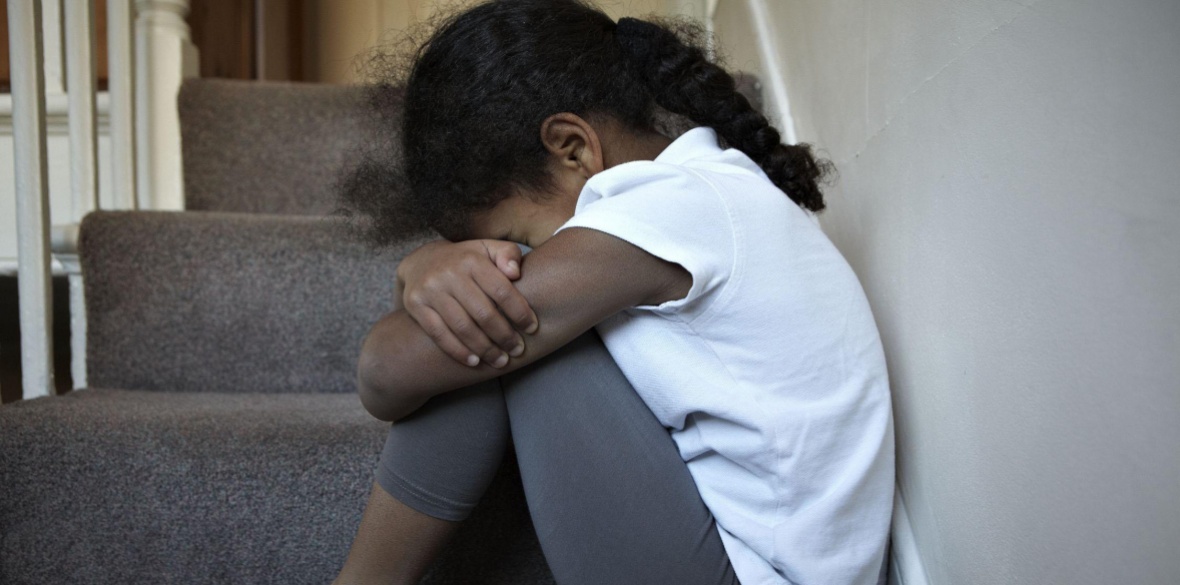This is the last article you can read this month
You can read more article this month
You can read more articles this month
Sorry your limit is up for this month
Reset on:
Please help support the Morning Star by subscribing here
THE prevailing narrative about children’s mental health is the way it is often individualised.
So we are provided with individual case studies which make good television. Producers reckon that bringing a human interest story into the news agenda makes for compelling viewing, enabling parents and children to empathise and identify with the individual in focus.
But the danger in this conventional media approach is that it unwittingly ignores the wider class, structural and health inequalities that produce mental health problems among the poorest communities.
For example, earlier this month the charity Place2B was encouraging people across Britain to take part in Children’s Mental Health Week with the theme “Find your Brave.”
It’s well-intentioned, but implies that children suffering mentally are not brave and need to shape up and shake off their problems.
It individualises the problem which is harmful as many young people who suffer in silence already feel worthless, ashamed, guilty and personally at fault.
Class is also rarely mentioned in contemporary mental health student texts which tend to reflect the prevailing orthodoxy for generalising about equal opportunity, yet it is a factor that cuts right across health and social policy and practice, and through the distinctions between race, sex and age.
Mental health problems affect three times as many children in social class V (manual and unskilled) compared with those in social class I (professional), according to the recent authoritative Social Trends findings.
It is important therefore to consider the external context of child and adolescent mental health problems and acknowledge that the impact of service provision in some families is mediated by factors such as unemployment, poor housing and poverty.
They all contribute to the level of resilience and capacity for resourcefulness of children and families.
A recent report on social inequalities from the Office for National Statistics revealed that one in 10 children in the United Kingdom suffers from a poverty-related mental health problem.
According to other research, the UK is fourth from the bottom of a list of relative poverty among the 19 richest nations.
The recent visit from the UN special rapporteur, looking at how austerity economics and cuts to welfare benefits and the introduction of universal credit have affected children and families, revealed evidence showing that 30 per cent of children in the UK were living in poverty in 2017.
A recent study just published by the Centre for Mental Health found that children from the poorest 20 per cent of households are four times as likely to have serious mental health difficulties by the age of 11 as those from the wealthiest 20 per cent.
Children and young people with a learning disability, who are statistically more likely to be in poorer families, are three times more likely than average to have a mental health problem.
And children from African-Caribbean communities in the UK have parents with higher rates of post-traumatic stress disorder and suicide risk and are more likely than average to be diagnosed with schizophrenia.
This increases the likelihood that children in these communities will be over-represented in the numbers diagnosed with a mental health problem.
Another aspect to child mental health that is also often ignored is the influence of big pharma.
This is especially important with regard to anti-depressant medication which is too often prescribed to children under 18 years of age against clinical guidelines.
GPs defend this practice, knowing that talking therapy treatments are unavailable or have huge waiting times or treatment for young people at risk of self-harm or suicide.
Big pharma makes lots of money out of mental illness and no more so that in the area of attention deficit hyperactive disorder (ADHD).
There is a long clinical debate about this diagnosis and whether it reflects underlying family stress or a genetic/brain condition.
But GPs are again faced with impossible choices about what to do when confronted by distressed parents unable to cope.
So a prescription for Ritalin (methylphenidate) which can quickly reduce symptoms of hyperactivity, aggression and restlessness is a quick cure when no therapeutic option is available.
In 2008 Novartis Pharmaceuticals, Shire plc, and Johnson & Johnson received warnings from the Federal Drug Administration regarding false advertising in which they overstated ADHD products’ efficacies.
In the same year Joseph Biederman of Harvard, a frequently cited ADHD expert, failed to report to Harvard that he had received $1.6 million research funding from pharmaceutical companies between 2000 and 2007.
E Fuller Torrey, executive director of the Stanley Medical Research Institute in the US, which finances psychiatric studies, said: “In the area of child psychiatry in particular, we know much less than we should, and we desperately need research that is not influenced by industry money.”
Every government over the past 25 years has promised to either reduce or eradicate child poverty. They have all failed. Unless the root causes of children’s increasing mental health problems are addressed, the current system is failing another generation of some of the most vulnerable children in Britain.
They will become the adults of the future with mental health problems, at risk of potentially ending up in the prison system, homeless, with relationship breakdowns, addicted to drugs and alcohol and ending their own lives. It does not have to be this way.
Steven Walker is former head of child and adolescent mental health at Anglia Ruskin University and author of Supporting Troubled Young People.









